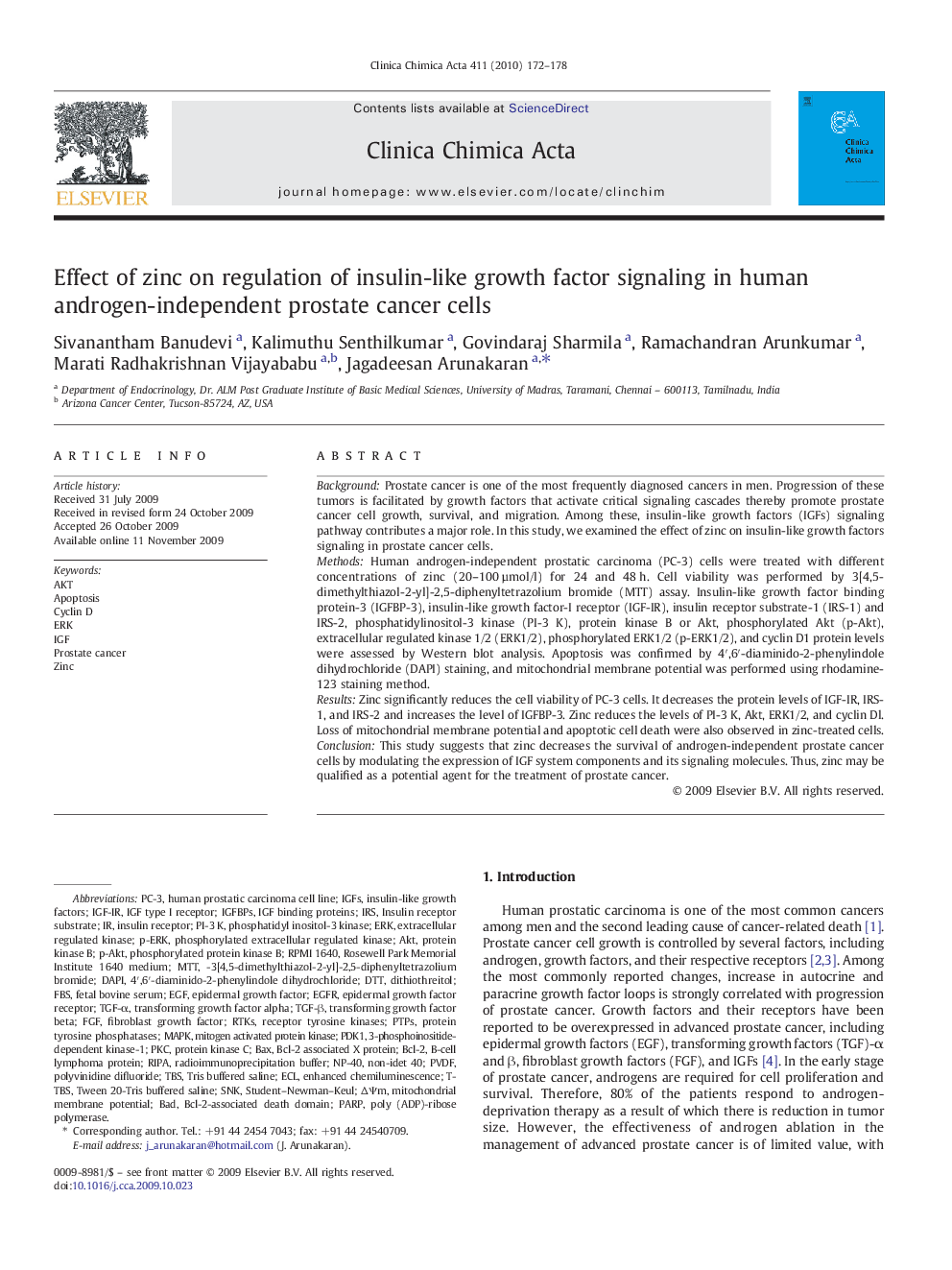| کد مقاله | کد نشریه | سال انتشار | مقاله انگلیسی | نسخه تمام متن |
|---|---|---|---|---|
| 1967176 | 1538719 | 2010 | 7 صفحه PDF | دانلود رایگان |

BackgroundProstate cancer is one of the most frequently diagnosed cancers in men. Progression of these tumors is facilitated by growth factors that activate critical signaling cascades thereby promote prostate cancer cell growth, survival, and migration. Among these, insulin-like growth factors (IGFs) signaling pathway contributes a major role. In this study, we examined the effect of zinc on insulin-like growth factors signaling in prostate cancer cells.MethodsHuman androgen-independent prostatic carcinoma (PC-3) cells were treated with different concentrations of zinc (20–100 µmol/l) for 24 and 48 h. Cell viability was performed by 3[4,5-dimethylthiazol-2-yl]-2,5-diphenyltetrazolium bromide (MTT) assay. Insulin-like growth factor binding protein-3 (IGFBP-3), insulin-like growth factor-I receptor (IGF-IR), insulin receptor substrate-1 (IRS-1) and IRS-2, phosphatidylinositol-3 kinase (PI-3 K), protein kinase B or Akt, phosphorylated Akt (p-Akt), extracellular regulated kinase 1/2 (ERK1/2), phosphorylated ERK1/2 (p-ERK1/2), and cyclin D1 protein levels were assessed by Western blot analysis. Apoptosis was confirmed by 4′,6′-diaminido-2-phenylindole dihydrochloride (DAPI) staining, and mitochondrial membrane potential was performed using rhodamine-123 staining method.ResultsZinc significantly reduces the cell viability of PC-3 cells. It decreases the protein levels of IGF-IR, IRS-1, and IRS-2 and increases the level of IGFBP-3. Zinc reduces the levels of PI-3 K, Akt, ERK1/2, and cyclin Dl. Loss of mitochondrial membrane potential and apoptotic cell death were also observed in zinc-treated cells.ConclusionThis study suggests that zinc decreases the survival of androgen-independent prostate cancer cells by modulating the expression of IGF system components and its signaling molecules. Thus, zinc may be qualified as a potential agent for the treatment of prostate cancer.
Journal: Clinica Chimica Acta - Volume 411, Issues 3–4, 2 February 2010, Pages 172–178